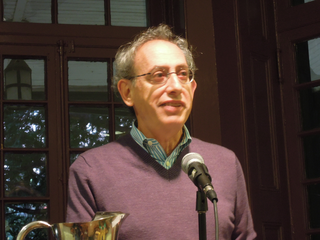A Quote by Nassim Nicholas Taleb
Read books are far less valuable than unread ones.
Related Quotes
Even when reading is impossible, the presence of books acquired (by passionate devotion to them) produces such an ecstasy that the buying of more books than one can peradventure read is nothing less than the soul reaching towards infinity ... we cherish books even if unread, their mere presence exudes comfort, their ready access, reassurance.
Those who aspire to the status of cultured individuals visit bookstores with trepidation, overwhelmed by the immensity of all they have not read. They buy something that theyve been told is good, make an unsuccessful attempt to read it, and when they have accumulated half a dozen unread books, feel so bad that they are afraid to buy more. In contrast, the truly cultured are capable of owning thousands of unread books without losing their composure or their desire for more.
It takes me about a week and a half to read the typical book. I don't know how many ten-day spans I have left. Eventually the unread books on my shelves will have to be abandoned, or they will join me on the pyre. The book I'm about to purchase may be among them. We all buy books we won't live to read.

































